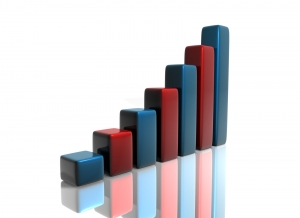
Indonesia Elevator Market by Type (Passenger elevator, Freight elevator and Others), by Technology (Traction and Hydraulic), by Service (New Installation, Maintenance and Modernization), by Capacity (Less than 1500 kg, 1500 to 2500 kg, 2501 to 4000 kg and More than 4000 kg) by Speed (Less than 1 M/S, Between 1 to 4 M/S and More than 5 M/S), by Deck type (Single Deck and Double Deck), by Designation Control (Smart and Conventional), by Door Type (Automatic and Manual) and by Application (Residential, Commercial and Industrial) - Opportunity Analysis and Industry Forecast, 2024 –2030
Industry: Construction & Manufacturing | Publish Date: 30-Mar-2024 | No of Pages: 129 | No. of Tables: 95 | No. of Figures: 60 | Format: PDF | Report Code : N/A
Market Definition
Indonesia Elevator Market size was valued at USD 2.12 billion in 2023, and is predicted to reach USD 5.59 billion by 2030, at a CAGR of 13.6 % from 2024 to 2030. The elevator market embodies a vibrant sector that encompasses the conception, production, installation, and upkeep of elevator systems. Ranging from traditional traction elevators to state-of-the-art smart solutions, this market presents a diverse range of vertical transportation options tailored to meet the unique needs of various buildings and infrastructure projects. Key players within the elevator market include manufacturers, suppliers, contractors, architects, building proprietors, and facility managers.
Manufacturers persistently innovate to elevate elevator performance, safety standards, and sustainability practices, while suppliers furnish essential components and materials essential for system assembly. Moreover, sustainability considerations, such as energy efficiency and material recyclability, are increasingly integrated into elevator design and operation, aligning with broader environmental goals and sustainable building principles. Consequently, the elevator market stands as a pivotal pillar of vertical mobility, enhancing functionality, accessibility, and sustainability across buildings and urban environments worldwide
Rapid Urbanization Within the Region is Propelling the Growth of the Market
The increasing trend of urbanization in Indonesia is poised to play a pivotal role in driving the expansion of the elevator market. According to the latest report from the Central Intelligence Agency, Indonesia's urban population accounted for 58.6% of the total population in 2023, with a notable annual urbanization rate of 1.99%. This rapid urbanization is fuelling the demand for infrastructure development, including residential and commercial buildings and industrial facilities. As cities grow and develop, the demand for vertical transportation such as elevators becomes increasingly pronounced. This, in turn, presents lucrative opportunities for market expansion in Indonesia.
Rising Construction Sector Fuels the Growth of the Market
Another significant driver for the growth of the elevator market in Indonesia is the ongoing infrastructure development initiatives and industrial expansion. The Indonesian government's focus on infrastructure development, including transportation networks, commercial hubs, and residential complexes, has led to increased construction activities across the country.
Additionally, the expansion of industries such as manufacturing, healthcare, and hospitality requires modern facilities equipped with vertical transportation solutions to enhance efficiency and accessibility. Consequently, there is a growing demand for elevators to facilitate vertical mobility within these newly developed infrastructures. This surge in construction projects and industrial expansion acts as a catalyst for the growth of the elevator market in Indonesia, presenting opportunities for manufacturers and service providers to meet the evolving needs of the market.
The Region's Market Growth Faces Impediments Due to High Initial Costs
The significant costs linked to installing, maintaining, and improving elevators create obstacles to expanding the market. From the initial installation expenses to the ongoing maintenance fees and the necessity for upgrades to comply with safety standards and improve energy efficiency, building owners face substantial financial hurdles. These challenges are especially daunting for owners located in economically disadvantaged areas or within older buildings. Consequently, the increased expenses associated with elevators hinder market expansion across different regions.
The Integration of Artificial Intelligence (AI) Into Elevators is Expected to Create Future Opportunities for the Market
The adoption of AI-driven predictive maintenance in the elevator industry offers an enticing opportunity, transforming maintenance and operational practices through AI advancements. By analyzing data collected from elevator sensors, AI algorithms can forecast maintenance needs ahead of time, minimizing downtime and maximizing elevator uptime. This proactive approach not only extends the lifespan of elevator components but also enhances safety by predicting unforeseen breakdowns and optimizing resource allocation, resulting in significant cost savings for elevator companies. Moreover, well-maintained elevators enhance user satisfaction, thereby enhancing the overall experience for building occupants and visitors. Embracing AI-driven predictive maintenance enables elevator firms to remain competitive and uphold service excellence in an ever-evolving market landscape.
Competitive Landscape
The Indonesia elevator market comprises various market players, such as Schindler, Otis Elevator Company, TK Elevator (TKE), Kone Corporation, Hitachi Ltd., Fujitec Co., Ltd, Hyundai elevator Co., Ltd, Mitsubishi Electric Corporation, Toshiba elevator and Building Systems Corporation, Winone elevator Company Limited and others.
Indonesia Elevator Market Key Segments
By Type
-
Passenger elevator
-
Freight elevator
-
Others
By Technology
-
Traction
-
Machine Room [MR] Traction
-
Machine Roomless [MRL] Traction
-
-
Hydraulic
By Service
-
New Installation
-
Maintenance
-
Modernization
By Capacity
-
Less than 1500 kg
-
1500 to 2500 kg
-
2501 to 4000 kg
-
More than 4000 kg
By Speed
-
Less than 1 M/S
-
Between 1 to 4 M/S
-
More than 5 M/S
By Deck Type
-
Single Deck
-
Double Deck
By Designation Control
-
Smart
-
Conventional
By Door Type
-
Automatic
-
Manual
By Application
-
Residential
-
Commercial
-
Industrial
REPORT SCOPE AND SEGMENTATION:
|
Parameters |
Details |
|
Market Size in 2023 |
USD 2.12 Billion |
|
Revenue Forecast in 2030 |
USD 5.59 Billion |
|
Growth Rate |
CAGR of 13.6 % from 2024 to 2030 |
|
Analysis Period |
2023–2030 |
|
Base Year Considered |
2023 |
|
Forecast Period |
2024–2030 |
|
Market Size Estimation |
Billion (USD) |
|
Growth Factors |
|
|
Companies Profiled |
10 |
|
Market Share |
Available for 10 companies |
|
Customization Scope |
Free customization (equivalent up to 80 working hours of analysts) after purchase. Addition or alteration to country, regional, and segment scope. |
KEY PLAYERS
-
Schindler
-
Otis Elevator Company
-
TK Elevator (TKE)
-
Kone Corporation
-
Hitachi Ltd.
-
Fujitec Co., Ltd
-
Hyundai Elevator Co., Ltd
-
Mitsubishi Electric Corporation
-
Toshiba Elevator and Building Systems Corporation
-
Winone Elevator Company Limited




 Speak to Our Analyst
Speak to Our Analyst


































